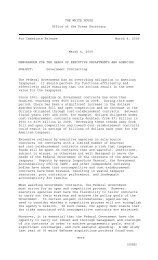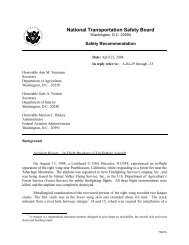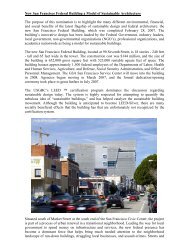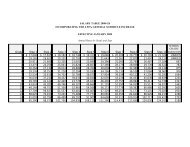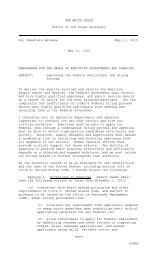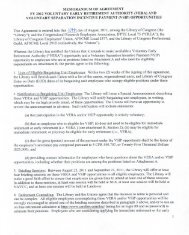Accenture's fifth annual global e-government study
Accenture's fifth annual global e-government study
Accenture's fifth annual global e-government study
Create successful ePaper yourself
Turn your PDF publications into a flip-book with our unique Google optimized e-Paper software.
Ireland<br />
2004 Rank: 11 (joint)<br />
2003 Rank: 11<br />
2002 Rank: 10<br />
Vision introduced: 2002<br />
Vision title:<br />
New Connections<br />
Vision summary:<br />
Ireland’s eGovernment vision has developed<br />
from a view that the application of technology<br />
could transform <strong>government</strong> service delivery to<br />
eGovernment as a key component of its <strong>government</strong><br />
modernization and transformation program.<br />
Its eGovernment objective is to be able to transact<br />
business with <strong>government</strong> or public service agencies<br />
from a single access point and to provide an<br />
environment for the expansion of e-business in the<br />
private sector.<br />
Regular Internet users (percent of population):<br />
50.46 percent<br />
Regular Internet users who have ever visited an<br />
eGovernment site: 60 percent<br />
Ireland<br />
Ireland has reached a plateau of eGovernment<br />
maturity in the same way as the majority of countries<br />
in our research this year, particularly in terms<br />
of service breadth, depth and customer relationship<br />
management. This may be due in part to a refocusing<br />
of eGovernment efforts to develop enablers that<br />
should boost Ireland’s eGovernment growth in the<br />
coming years.<br />
While the Irish <strong>government</strong>’s vision for eGovernment<br />
has not changed since its introduction in 2002,<br />
the <strong>government</strong> is aware of what steps it needs to<br />
take to move forward. In November 2003, the Irish<br />
Information Society Commission called for a reorientation<br />
of the country’s eGovernment strategy<br />
in its report, eGovernment: More than an Automation<br />
of Government Services (www.isc.ie/about/reports.html).<br />
The report emphasizes that <strong>government</strong> must look<br />
beyond putting services online to how information<br />
and communications technologies can improve overall<br />
public-sector performance. The report describes what<br />
it means to be a truly high-performance <strong>government</strong><br />
in the online arena: using eGovernment as one,<br />
albeit important, tool to deliver high-value <strong>government</strong><br />
services more efficiently and cost-effectively.<br />
The Information Society Commission’s recommendations<br />
touch on a number of themes covered in this<br />
leadership report, such as the need for a more balanced<br />
approach to eGovernment based on value<br />
and the importance of interoperability. As such, the<br />
commission advises that eGovernment be closely<br />
aligned with overall public reform to improve services,<br />
processes and policies. Additionally, it states that<br />
Ireland must revisit its original target of putting all<br />
services online by 2005 with a clearer focus on measurable<br />
benefits. This is an important point as to date,<br />
Ireland does not have a method of measuring the<br />
tangible benefits of eGovernment. The report also<br />
states that the eGovernment program must incorporate<br />
a variety of channels to accommodate the<br />
needs and preferences of all citizens and businesses.<br />
Ireland recently completed a crucial step in building<br />
an enabling infrastructure. The Reach Agency<br />
(www.reach.ie), a cross-departmental team of civil<br />
servants, has come to the end of its procurement<br />
78





